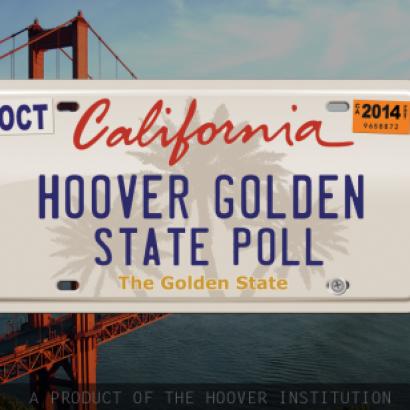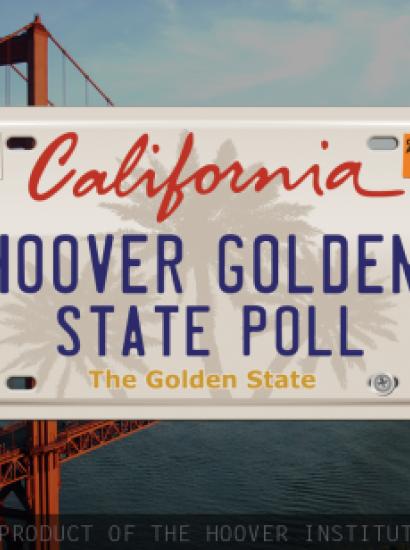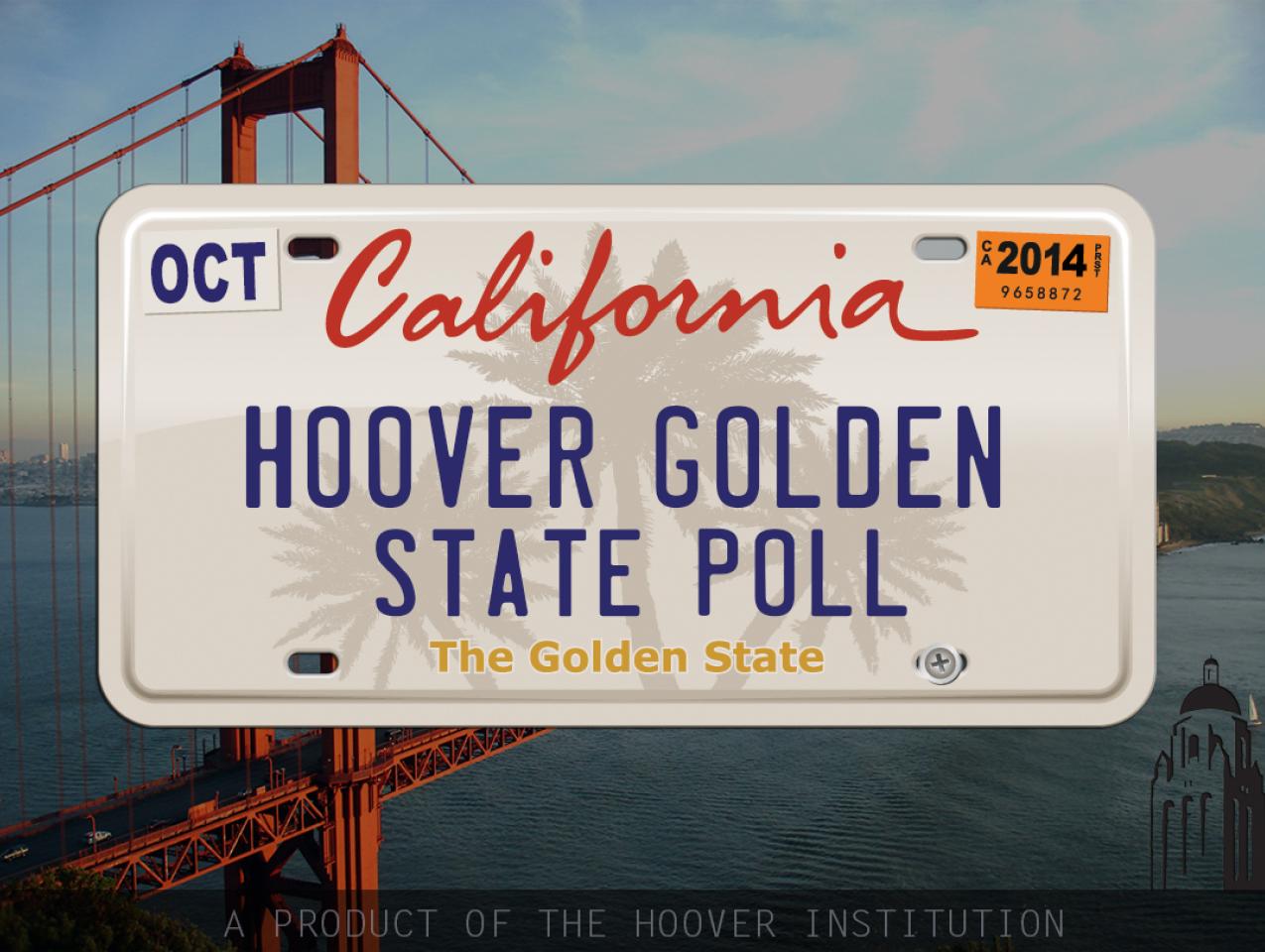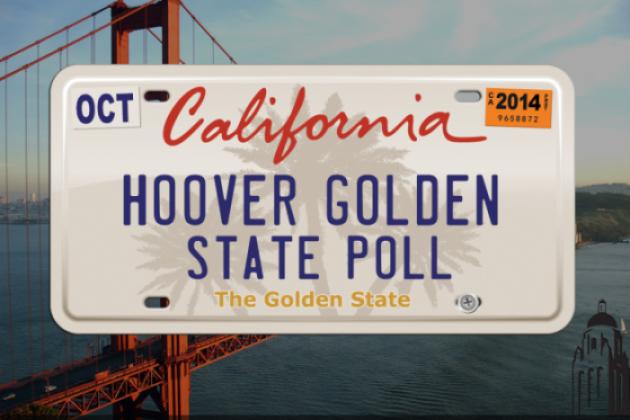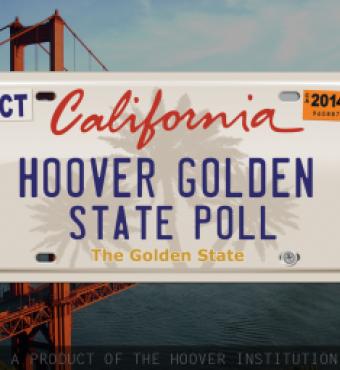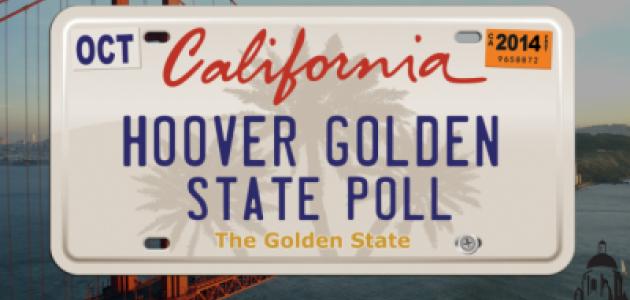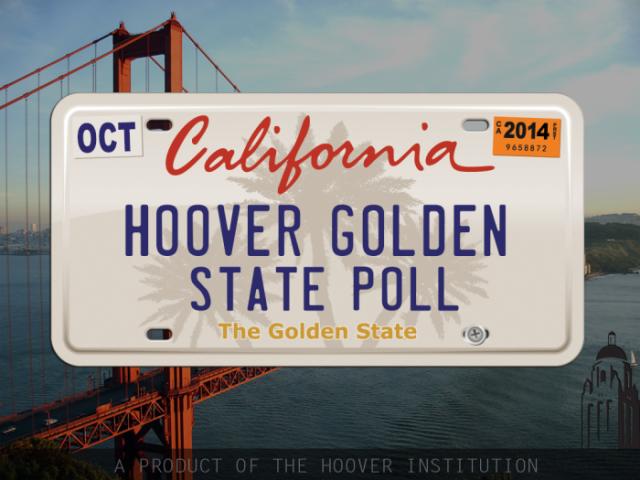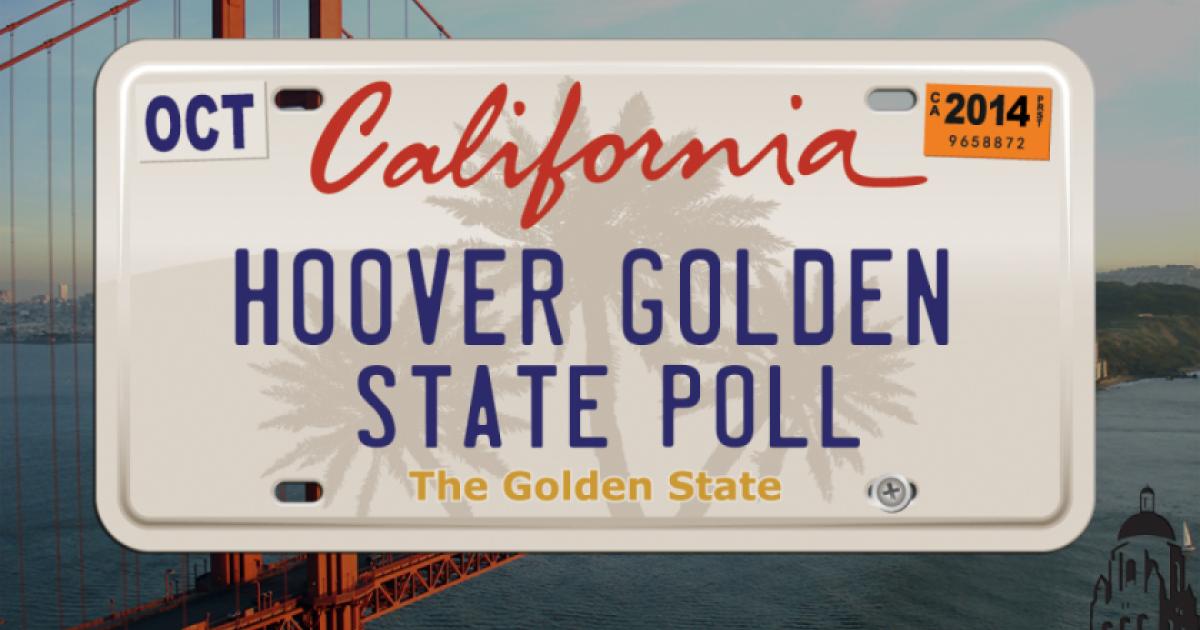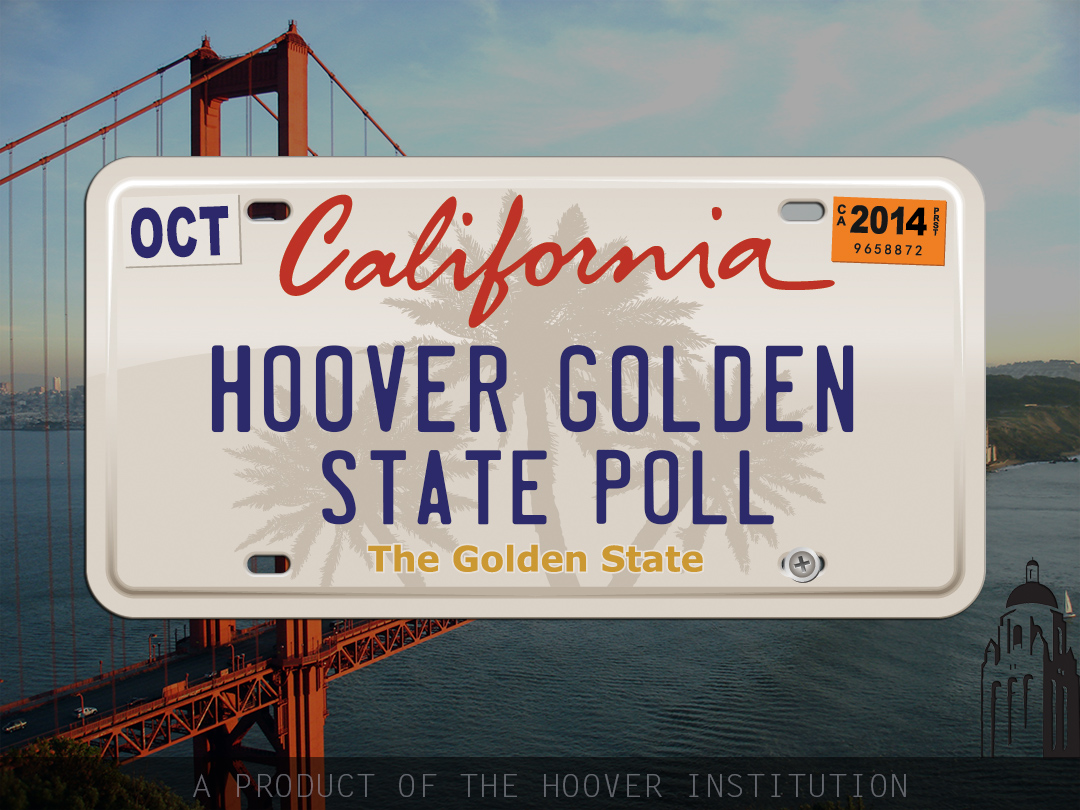
With the 2014 election just one week away, the Hoover Institution’s Golden State Poll finds California governor Jerry Brown holds a seventeen-point lead over his Republican challenger, businessman Neel Kashkari. Voters’ support for Brown on Election Day, however, hovers slightly below a bare majority, at 48 percent; 16 percent of self-identified registered voters were still undecided about whom to support for governor. Kashkari trails by three points (within the survey’s margin of error) among those over the age of sixty-five, white voters, and Independents, with one-quarter of Independents not sure about how to cast their ballots.
The survey, administered by the survey research firm YouGov from October 3 to October 17, sampled 1,273 Californians, with a margin of error of plus or minus 3.65 percent for the full sample, including an oversample of 273 millennials (18-34 year-olds).
The poll found that large majorities of voters who preferred either Brown or Kashkari are unlikely to change their minds before Election Day. Although 87 percent of Brown’s voters say that they are casting an affirmative vote in favor of the governor, only 29 percent of Kashkari’s voters say they are casting an affirmative vote in favor of the Republican challenger.
"The poll’s numbers reflect a California election that contains little in the way of political intrigue or public enthusiasm. The governor’s numbers are soft, as are those of his challenger. No initiative has either runaway support or condemnation,” said Hoover fellow Bill Whalen, an expert in California politics who leads question development for the Golden State Poll. “However, there are signs of trouble on the horizon. The public isn't sold on some contentious tax and social issues—revisiting Propositions 30 and 13, dismantling Proposition 209—that will dominate Sacramento over the next four years.”
Hoover’s poll also found that a small majority of California voters opposes efforts to reinstate affirmative action in admissions to the state’s public colleges and universities. But younger voters (18-34 and 35-44 year-olds) were less opposed and more supportive than older Californians.
“These younger voters whom we surveyed in our representative sample are more likely to be nonwhite, especially Hispanic. They are, as some say, the New California,” said Tammy Frisby, PhD, a Hoover research fellow who directs the survey’s design and data analysis.
The poll also tested four of the state ballot initiatives that voters will consider on November 4 and found that only Proposition 1, the water bond measure, earned the support of a majority of voters polled, with 52 percent in favor. Proposition 2, the initiative to create a rainy-day fund, earned 47 percent; Proposition 45, the initiative requiring the state’s insurance commissioner to approve health insurance rate changes, was supported by 42 percent; and Proposition 46, the measure raising the cap on medical malpractice lawsuits and requiring drug testing of doctors, earned the support of just 34 percent.
For more information:
- Download a PDF of the Hoover Institution Golden State Poll
- Read Research Fellow Carson Bruno's analysis from Defining Ideas
- Read an analytical overview from Eureka
- Listen to the podcast featuring Carson Bruno, Tammy Frisby, and Bill Whalen
The Hoover Institution Golden State Poll is conducted quarterly by researchers at the Hoover Institution at Stanford University, in partnership with the survey research firm YouGov. The October 2014 Hoover investigators are Carson Bruno; Jeremy Carl; Lanhee Chen, PhD; Tammy Frisby, PhD; and Bill Whalen. Survey respondents are matched on a set of individual characteristics; the sample is statistically weighted based on estimates from the American Community Survey, the Current Population Survey, and the Pew Religious Landscape Survey.







